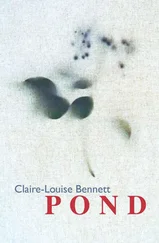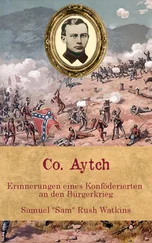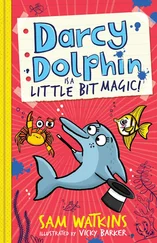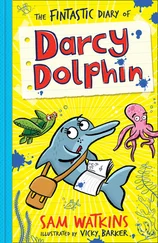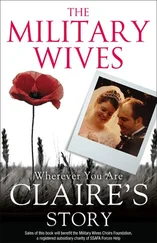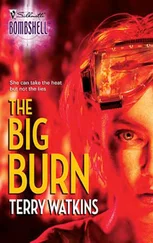Their stepfather points to the desert. “There,” he says. A flash of light across the basin. An orange mushroom cloud erupts, rolling and boiling. Seconds later, she hears the boom of it, like a firework, and the trailer begins to sway. Impossibly, the heat warms my mother’s face. “Makes you think,” her stepfather says softly in her ear. “Maybe there’s something godly out there after all.”
The blast is a 104-kiloton nuclear explosion. It blows a hole into the desert rock, creating the deepest crater of all the Nevada Test Site’s 1,021 detonations: 320 feet deep. The crater displaces seven hundred tons of dirt and rock, including two tons of sediment from a vein of H. T. P. Comstock’s cursed soil, a finger reaching all the way down the state, now blown sky-high in the blast. The July breeze is gentle, indecisive. It blows the radiation northeast, as it always does, to future cancer clusters in Fallon and Cedar City, Utah, to the mitosing cells of small-town downwinders. But today it also blows the curse southeast, toward Las Vegas, to my mother’s small chest, her lungs and her heart. And it blows southwest, across the state line, all the way to the dry yellow mountains above Los Angeles. These particles settle, finally, at 1200 Santa Susana Pass Road.
• • •
We might start with George’s longest year:
For nearly twenty years, George’s letters to his son, Henry, back home in Pennsylvania were characteristically dry, questions about herd count, tips for working the swarm at honey harvest; he hardly mentioned his own ranch, which to his son would not have seemed a ranch at all.
But by the early 1960s the demand for Westerns began to wane and George Spahn blamed, among others, Alfred Hitchcock. He increasingly ended his notes about farm business with aggravated rants about “cut-’em-ups,” and “sex-crazed” moviegoers’ fixation on horror films, probably meaning Hitchcock’s Psycho, the second-highest-grossing film of 1960, after Swiss Family Robinson . On the first day of February 1966, George Spahn filed for bankruptcy. By then, unbeknownst to George, his wife’s kidneys were marbled with tumors. Six weeks later, at UCLA Medical Center, Helen died from renal failure on the same floor where my father would die thirty-four years later. The coroner’s report noted that her tumors were visible, and in the glaring light of the microscope seemed “like hundreds of hairlike silver ribbons.”
After Helen’s death, George neglected the few already tenuous ties he had at the big studios. He wrote Henry often, spoke of the ranch deteriorating, of weeds pushing up through the soil in the corrals.
“I’m tired,” he wrote to his son on July 23, 1966. “Let most everyone [three part-time ranch hands] go. It is hot here. So hot I have to wait for dusk to feed the horses. They get impatient down in the stalls and kick the empty troughs over. Boy, you wouldn’t believe the noise of their hoofs against the metal…”
In the end it was the horses, thirsty or not, that kept Spahn’s Ranch afloat. Spahn rented the horses to tourists for self-guided rides through the hills. Occasionally, a few of George’s old studio friends would throw business his way, sending for six or eight paints when a scene couldn’t have needed more than two. And so the horses became George’s main source of income, meager as it was. The Los Angeles County tax records show Spahn’s annual income in 1967 to be $13,120, less than a quarter of what it was in 1956.
In previous letters, George rarely wrote of Helen. When he did his lines were terse, referring to her only along with other ranch business: “Storm coming in. Your mother’s knuckles would have swelled. Lord knows we need the rain.”
That year, George continued to write even as his eyesight failed, his lines sometimes piling atop one another. He began to write of Helen more frequently, sometimes devoting an entire page to her blackberry cobbler or the fragrance of her bath talcum. These are the only letters in which George, otherwise a deliberate and correct writer, slips into the present tense.
In September, George reported discovering a tiny bleached skull in the hills above his cabin. “Bottles,” he wrote, “picked clean by coyotes.”
• • •
Or here. Begin here:
When a group of about ten young people — most of them teenagers, one of them my father — arrived at the ranch in January of 1968, having hitchhiked from San Francisco, George was nearly blind. Surely he smelled them, though, as they approached his porch — sweat, gasoline, the thick semisweet guff of marijuana. The group offered to help George with chores and maintenance in exchange for permission to camp out in the empty façaded set buildings. Though he’d broken down and hired a hand a couple weeks earlier — a nice kid, a bit macho, went by “Shorty,” wanted to be, what else? an actor — George agreed, perhaps because he wouldn’t have to pay them. Or perhaps because the group’s leader — a man named Charlie — offered to leave a young girl or two with George twenty-four-seven, to cook his meals, tidy the house, keep up with the laundry, and bed him whenever he wanted.
My father didn’t kill anyone. And he’s not a hero. It isn’t that kind of story.
Nearly everyone who spent time at Spahn’s that summer wrote a book after it was over, Bugliosi’s only the most lucrative. We know, from the books of those who noticed, that a baby was born at Spahn’s Ranch, likely April ninth, though accounts vary. In her version, Olivia Hall, who’d been a senior at Pacific Palisades High School and an occasional participant in group sex at the ranch, wrote of the birth: “The mother, splayed out on the wood floor of the jail, struggled in labor for nearly fourteen hours, through the night and into the early morning, then gave up.” In The Manson Murders: One Woman’s Escape , Carla Shapiro, now a mother of four boys, says the struggling girl “let her head roll back onto a sleeping bag and would not push. Then Manson took over.” My father’s book reads, “Charlie held a cigarette lighter under a razor blade until the blade was hot and sliced the girl from vagina to anus.” The baby girl slipped out, wailing, into Charlie’s arms. My father: “The place was a mess. Blood and clothes everywhere. I don’t know where he found the razor blade.”
Charlie had a rule against couples. The group had nightly orgies at the ranch and before it in Topanga, Santa Barbara, Big Sur, Santa Cruz, Monterey, Oakland, San Francisco, the list goes on. You know this part, I’m sure. The drugs, the sex. People came and went. Tracing the child’s paternity was impossible, even if the group had been interested in that sort of thing. “There was a birth, I know that,” Tex Watson wrote to me from prison. “Hell, might’ve been mine. But we were all pretty gone, you know?”
Of the mother, the accounts mention only how young she was. No name, no explanation of how she came to the ranch. One calls her “dew-faced.” In his account my father admits to having sex with her on several occasions. He says, “She was a good kid.”
After police raided Spahn’s on August sixteenth, California Child Protective Services placed the baby with foster parents, Al and Vaye Orlando of Orlando’s Furniture Warehouse in Thousand Oaks. Vaye constantly fussed over the baby, worried at her calmness, what she called “a blankness in her face.” During the child’s first five years, Vaye had her examined for autism seven times, never trusting the results. She even hired a special nanny to play games with the child, encourage her cognitive development. Al thought this a waste of money.
Now the baby is a grown woman, forty. She is slender but not slight, and moves like liquid does. She has dark hair and the small brown eyes of a deer mouse. Not the eyes of those teenage girls my father met at Pali, the ones he invited to Spahn’s and introduced to Charlie, the ones, later, with crosses cut into their foreheads, arms linked, singing down hallways, smiling into the camera in archived footage. I’ve looked. These are my father’s brown eyes. Mine.
Читать дальше

